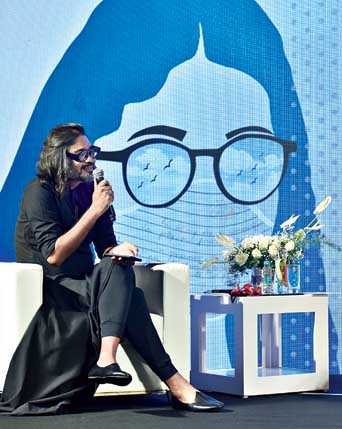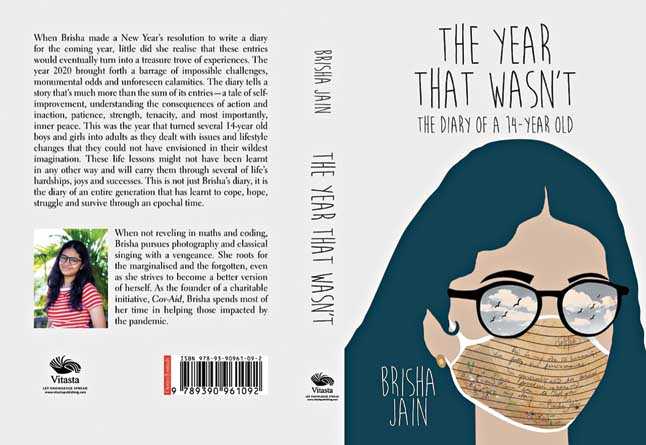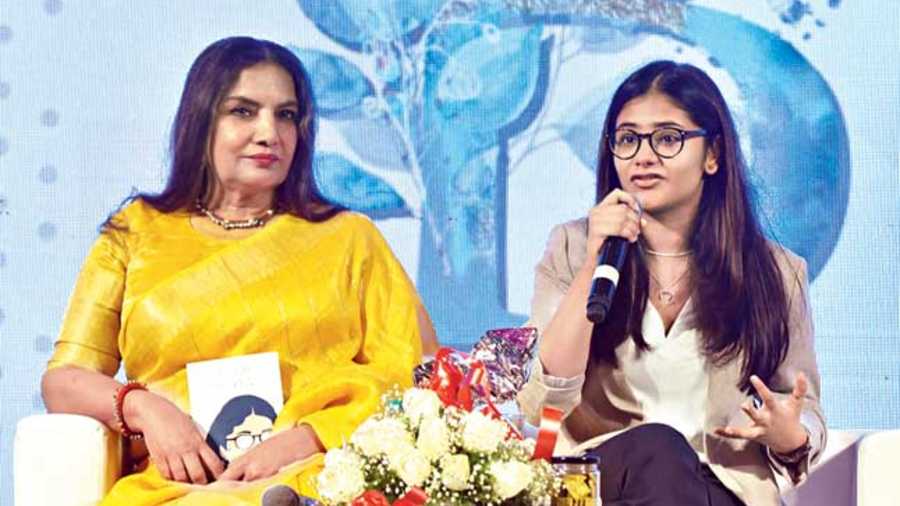Looking back, one realises the upheavals of the pandemic affecting everyone at different levels. While for some, it meant, social isolation, for some it meant hunger for food. However, privileges and its lack aside, the undeniable aspect of the pandemic can only be marked by loss and historians will one day include a chapter on this pandemic, holding up these deeply personal and yet universal viewpoints of various age groups. A book that could perhaps contribute to this chapter is Brisha Jain’s diary entries that have now been launched as a book The Year That Wasn’t: The Diary of a 14-Year Old (Vitasta Publishing Pvt Ltd; Rs 399). The occasion was celebrated with a charming conversation involving veteran film personality Shabana Azmi, the author Brisha and scenographer Swarup Dutta, at the JW Marriott Hotel, Kolkata.
It all started with Brisha wanting to document her year in a diary as a personal experiment. Little did she know that her year would be turned upside down so. One can see the emergence of a thoughtful, socially-involved, feminist individual in this fledgling author as she documents the country’s strife against the CAA and NRC bills and the protests that ensued and gripped the country last year. Slowly, as the pages turn, one finds her voice getting more demure as the lockdown begins. There is the confusion of the unknown and connectivity aided by technology inundating us with information overload at the same time. At an age when peer-to-peer learning forms a crux of growing up, this 10th standard student of Modern High School for Girls simply captured the emotional turmoil of social isolation hindering growth.

Swarup Datta

Brisha’s awareness of the world around her was much appreciated by Shabana Azmi who applauded her drive to do something better instead of succumbing to the digital lure of social media. The importance of a book such as Brisha’s will find resonance amongst the audience of her age who are trying to grapple with the right words to frame their state of mind. In retrospect, this book will also be helpful for those documenting these torrid times for posterity. The forward and introduction of the book is written by Devi Kar and Damayanti Mukherjee, the director and principal of Modern High School for Girls, Kolkata, respectively, who also happened to be in the audience beaming with pride at Brisha’s achievements. Brisha pursues classical music and photography and has also founded a charitable initiative called Cov-Aid, providing medical attention to those in need, during this difficult period. Stepping away from her privilege, her book throws light on the plight of migrant workers and her work continues well into the second wave of Covid where she started a website to track the availability of oxygen in the city. A STEM enthusiast, that, she happens to be a coder helped her case. There is a lot of inspiration to be taken from Brisha’s book by other 12-16-year-olds caught in a similar predicament as her. That one need not lose hope and find joy and purpose in lending a helping hand in times of distress, is a lesson for all.
Pictures: B. Halder










